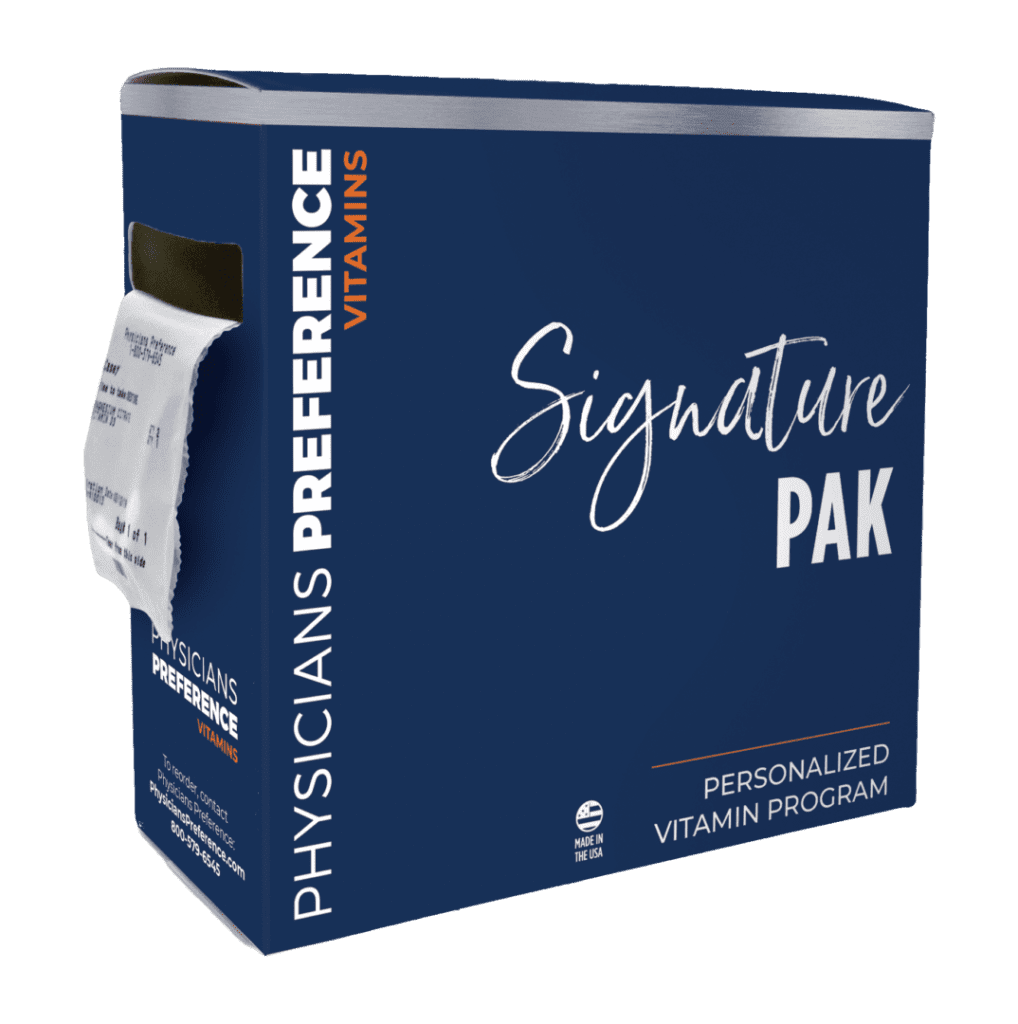
Allergy Relief Pak: Top 5 Supplements for Allergies
More than 50 million people in the U.S. experience various types of allergies each year. (1)
Allergies are the sixth leading cause of chronic illness in the U.S. (1)
In 2018, approximately 24 million people in the U.S. were diagnosed with seasonal allergic rhinitis (hay fever). (1)
Are you suffering from allergy symptoms such as sneezing, postnasal drainage, itchy and watery eyes, sinus infections or asthma? Millions of people suffer from allergies every year. Allergies can make you sick, miss work and time spent with friends, dampen your sense of well-being and have a poor quality of life. The great news is that there are natural supplements that can help you prevent and relieve allergy symptoms – and we want to share our top 5 with you.
What are allergies?
Allergies are an abnormal reaction by your immune system to normally occurring substances in the environment. You could react to something you breathe in the air, or something you eat or put on your skin, for instance. An allergic reaction can cause coughing, sneezing, hives, rashes, itchy eyes, a runny nose, and a scratchy throat. In severe cases, it can cause low blood pressure, breathing trouble, asthma attacks, and even death if not treated promptly. (1)
Common Allergy Symptoms
- Sneezing
- Postnasal drainage
- Itching of the nose
- Frequent “colds”
- Recurrent or chronic sinus infections
- Recurrent yeast infections, jock itch or athlete’s foot
- Fatigue
- Frequent headaches
- Dizziness
- Itching, watering, redness or swelling of the eyes
- Dark circles under the eyes
- Recurrent ear infections
- Recurrent cough or bronchitis
- Tightness in the chest, wheezing or asthma
- Eczema, skin rashes, itching or hives
- Indigestion, bloating, diarrhea or constipation
Top 5 Supplements for Allergies
Here are our top 5 supplements to help you prevent and relieve your allergy symptoms:
1. Vitamin C
Several well-known vitamins and supplements help support the immune system, but perhaps none do so as much as the famous vitamin C. Phagocytes and t-cells are both cells of the immune system that store vitamin C and use it to perform their immunity tasks. Higher levels of vitamin C in the system improve their immune response and lower levels of vitamin C reduce their response and contribute to decreased resistance. Vitamin C is also a powerful antioxidant, natural anti-inflammatory (which helps with aches and pains) and a natural antihistamine.
So you could say that taking vitamin C, especially in doses over 2,000 mg, could be helpful for several allergy symptoms like sneezing, nasal drainage and itchy, red eyes, to name a few. Vitamin C has other positive effects on your health such as supporting your adrenal glands, improving heart health, and promoting collagen production to help improve skin health.
Research data indicates that the reduction of oxidative stress and inflammation by vitamin C can be beneficial in patients with allergic diseases. As a matter of fact, a vitamin C deficiency was observed in patients with allergies. There is also evidence of the use of high-dose IV vitamin C in the treatment of respiratory and skin allergies. (2)
Vitamin C is an essential nutrient which cannot be made by our body, so we must obtain it from food and supplements. More than half a century of research has shown vitamin C to be a crucial player in various aspects of the immune system, particularly immune cell function. Vitamin C exerts a multitude of beneficial effects on cellular functions of both the innate and adaptive immune system. (3)
Research demonstrates that vitamin C relieves the signs and symptoms of allergic rhinitis, or hay fever, such as sneezing, congestion, itchy nose and sore throat. (4) Research showed that the group of children with increased vitamin C consumption had fewer symptoms of allergic rhinitis. (5)
Associations between antioxidants and allergies have been reported in numerous research studies. Most observational studies report beneficial associations between dietary antioxidants and allergies. For example, low consumption of fruit and vegetables, which are rich sources of antioxidants, and low intake of dietary antioxidants such as vitamin C, vitamin E, and selenium, are associated with respiratory symptoms and reduced lung function. (5)
2. Colostrum Complete
Colostrum, as is in our Colostrum Complete, is another well-known immune-boosting supplement. It works by providing beneficial antibodies that give your immune system the blueprints for attacking many different pathogens. Colostrum can also help heal a leaky gut, which is a common cause of food allergies such as gluten intolerance.
Research shows that bovine milk contains many components that have immunomodulatory and antimicrobial properties. Bovine IgG immunoglobulins found in colostrum can not only bind to a wide range of pathogenic bacteria and viruses, but also to many allergens, including airborne and some food allergens. (6)
The consumption of normal bovine colostrum can help protect immunocompromised people from getting sick, as well. Colostrum helps reduce allergic disease and intestinal inflammation. (7)
3. Vitamin D
Vitamin D is often associated with bone health, but it’s been more recently identified as a critical element of the immune system, just like vitamin C. Vitamin D can modulate both adaptive and innate immune responses. The adaptive immune response eliminates specific pathogens and prevents their growth. The innate immune response is more general. Low levels of vitamin D are associated with autoimmune disorders, as well as overall lower immune response.
Vitamin D has known effects on lung development and the immune system that may be important in the development, severity and course of allergic diseases such as asthma, eczema and food allergy. Vitamin D deficiency is prevalent worldwide and may partly explain the increases in asthma and allergic diseases that have occurred over the last 50-60 years. Vitamin D has immunomodulatory effects on allergen-induced inflammatory pathways by acting on a variety of immune cells. (8)
Vitamin D and its receptor are both essential for development of natural killer cells, which are a type of white blood cell, a type of important immune cell that can help protect against diseases. (8, 9)
Research shows that low maternal vitamin D intake during pregnancy is associated with increased risk of children developing asthma in the first ten years of life. (10) The results of the International Study of Asthma and Allergies (ISAAC) Phase II in Spain indicate that sunny hours (when we make vitamin D) have a protective effect on the prevalence of asthma in school children. (11)
4. Curcumin Ultimate
One of the most important natural compounds with a high potency of immune modulation is curcumin, an active polyphenol compound derived from turmeric, Curcuma longa L. Curcumin’s immunomodulatory action mainly arises from its interactions with an extensive collection of immune cells. Clinically, curcumin has been found to have the potential therapeutic efficacy in treating several allergic diseases like asthma. (12)
Curcumin Ultimate is a very effective antioxidant that helps detoxify the liver. A clean liver will free up more nutrients to help with other processes like immune system support and regulation. Curcumin also helps lower inflammation which can help relieve pain. It’s actually shown itself to be just as effective at pain relief as over the counter NSAIDs, without the dangers of eroding the stomach lining. (13)
5. Probiotic Blend
Probiotics are a type of beneficial bacteria that are found within the gut, and they are often called good bacteria because they help keep your gut healthy. It’s been said that about 80% of the immune system is actually in the gut. It’s this good bacteria that helps keep the gut balanced and healthy. Probiotics can also manufacture vitamins and help send appropriate signals to the brain via the gut-brain connection.
Our Probiotic Blend is a superior, high-quality blend of good bacteria that helps improve immune function and restore gut health. Probiotic Blend is gluten-free and dairy-free, and tends to help with both seasonal and food allergies.
Probiotics are a safe and natural solution to help with allergy prevention and treatment. They have beneficial effects on allergies and have been shown to be efficient in decreasing the IgE immunoglobulin, as well as in alleviating allergy symptoms. (14) If you have an allergy, your immune system overreacts to an allergen by producing antibodies called Immunoglobulin E (IgE). These antibodies travel to cells that release chemicals, causing an allergic reaction. This reaction usually causes symptoms in the nose, lungs, throat, or on the skin. (15)

Allergy Relief Pak
Would you like to have an easy way to take all of these natural allergy supplements together in one easy-to-take pack? We have created the Allergy Relief Pak just for you. It contains all of the supplements mentioned above: Vitamin C, Colostrum, Vitamin D, Curcumin Ultimate and Probiotic Blend. Having these vitamins preorganized and packeted makes not only more convenient for you, it also makes it more likely that you will take the vitamins daily, which will drastically improve your chances of feeling better soon.
Order Your Allergy Relief Pak Today!
Call our Certified Holistic Nutritionists and Vitamin Consultants at Physicians Preference Vitamins with any questions about your vitamin needs or health concerns at 281-646-1659. It will be our privilege to serve you!
Research
3. Vitamin C and Immune Function
4. Study of Vitamin C Therapy in Allergic Rhinitis
5. Association of Antioxidants With Allergic Rhinitis in Children From Seoul
6. Effects of Bovine Immunoglobulins on Immune Function, Allergy, and Infection
7. The Effects of Milk and Colostrum on Allergy and Infection: Mechanisms and Implications
8. Vitamin D and the Development of Allergic Disease: How Important Is It?
9. National Cancer Institute Natural Killer Cell
10. Maternal Vitamin D and E Intakes During Pregnancy are Associated with Asthma in Children
12. Therapeutic Potency of Curcumin for Allergic Diseases: A Focus on Immunomodulatory Actions
14. Beneficial Effects of Probiotic Consumption on the Immune System
15. American Academy of Allergy Asthma & Immunology – Immunoglobulin E (IgE) Defined
